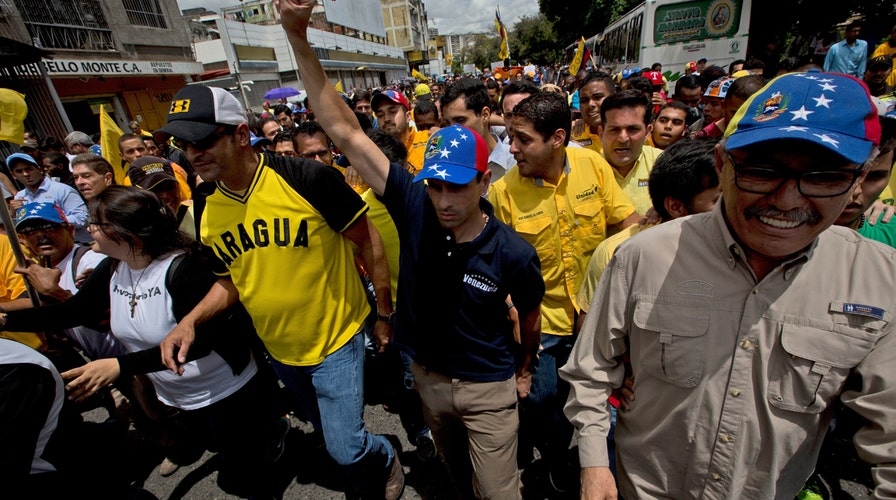CARACAS, Venezuela – Venezuela suspended CNN in Spanish on Wednesday, shutting off the news channel after officials angrily criticized a report by the network alleging government workers sold passports to members of a Middle East terror group.
The National Telecommunications Commission announced it initiated the "administrative sanction" because of news stories that it considered "direct aggressions" against Venezuela. Those aggressions "threaten the peace and democratic stability" of Venezuela, the agency said in a news release.
It did not cite the passport story, but the suspension followed a steady stream of criticism aimed by government officials at CNN since the investigative report was aired Feb. 6.
Related stories...
"I want Venezuela very far from here. Out of Venezuela!" President Nicolas Maduro said on state television Sunday. "Venezuelan matters are ours and we should resolve them ourselves."
Hours before the suspension was announced, Foreign Minister Delcy Rodriguez noted Maduro's socialist government had requested that authorities take action against CNN in Spanish because of the "damage" it caused Venezuela with its report on passports.
CNN's story was based on a whistleblower's allegations that Venezuelan officials had been selling passports from the country's embassy in Iraq to people of Middle Eastern origin, including a few members of Hezbollah.
In a statement, CNN said that it stood by its reporting and that the government's decision denied Venezuelans access to the network's news and information. It said it would continue airing content on YouTube and its website.
"At CNN en Espanol we believe in the vital role that freedom of press plays in a healthy democracy," the company said.
CNN's story identified Vice President Tareck El Aissami as one of the people responsible for the illegal sales during his days as interior minister overseeing the issuance of passports.
The Trump administration imposed sanctions on El Aissami on Monday, accusing him of playing a major role in international drug trafficking following a years-long investigation. On Tuesday, Rodriguez delivered a letter to the acting head of the U.S. Embassy in Caracas formally protesting that action.
The New York-based Committee to Protect Journalists issued an alert Monday accusing Venezuela of taking an "increasingly hostile stance" toward foreign reporters, including barring several from entering the country.
"We call on the government of President Maduro to put an end to this systemic practice of obstructing news coverage and to stop interfering with the work of the press," said Carlos Lauria, the group's senior program coordinator for the Americas.

